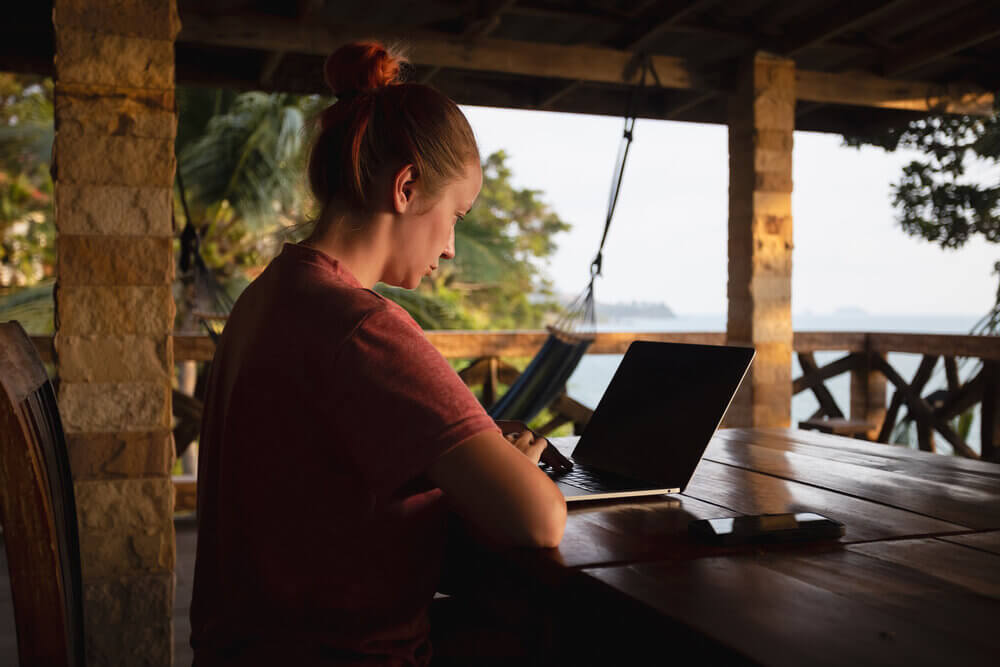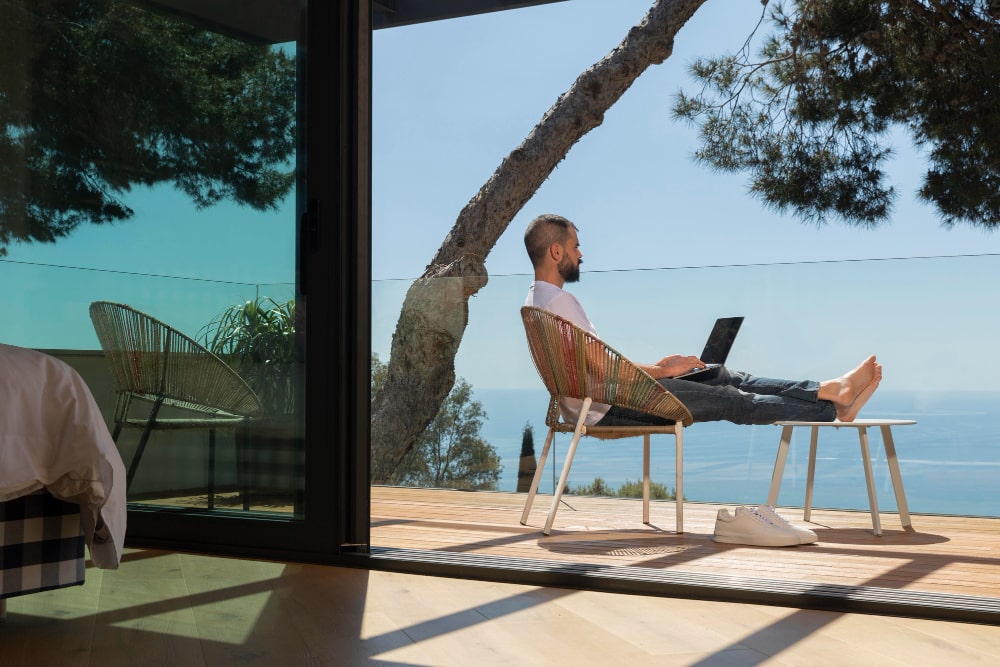Bali’s Hotspots (Canggu, Ubud, Uluwatu) and How to Legally Run Your U.S. LLC There
Bali has transformed from a tourist paradise into a thriving hub for digital nomads and location-independent entrepreneurs. The island’s unique combination of affordable living, reliable infrastructure, vibrant expat communities, and stunning natural beauty has created perfect conditions for running international businesses remotely. For U.S. LLC owners, Bali offers an exceptional base of operations, provided you understand the legal framework and choose the right location for your needs.
Each of Bali’s major digital nomad hotspots – Canggu, Ubud, and Uluwatu – offers distinct advantages and challenges for running your U.S. LLC. This comprehensive guide explores the practical realities of operating from each location, including infrastructure considerations, community resources, legal compliance strategies, and lifestyle factors that can impact your business success. Whether you’re seeking the surf-and-work culture of Canggu, the spiritual and creative energy of Ubud, or the cliff-top luxury of Uluwatu, understanding these nuances is crucial for maintaining both business productivity and legal compliance.
Canggu: The Digital Nomad Capital of Southeast Asia
Canggu has evolved from a quiet coastal village into arguably the most popular digital nomad destination in Southeast Asia. The area stretches along Bali’s southwest coast, encompassing several beaches including Echo Beach, Batu Bolong, and Berawa. This transformation has created an ecosystem perfectly suited for running international businesses, with infrastructure specifically catered to remote workers’ needs.
The coworking space density in Canggu is unmatched anywhere else in Bali. Outpost, Tropical Nomad, and Biliq Bali offer not just desks and WiFi, but complete business ecosystems with networking events, skill-sharing sessions, and community support. These spaces typically provide 50-100 Mbps dedicated internet, backup power systems, private call booths, and printing facilities – essential infrastructure for managing your U.S. LLC professionally.
The international community in Canggu creates unique advantages for U.S. business owners. You’ll find fellow entrepreneurs from every continent, creating opportunities for collaboration, partnerships, and knowledge exchange. Weekly meetups, startup pitches, and industry-specific gatherings happen regularly, providing networking opportunities that rival major business hubs.
However, Canggu’s popularity brings challenges. The cost of living has increased significantly, with monthly villa rentals ranging from $800-$3000 depending on location and amenities. Traffic congestion, especially during sunset hours, can impact productivity if you need to travel frequently. The party atmosphere in certain areas can also be distracting for those requiring quiet work environments.
From a legal compliance perspective, Canggu’s high visibility means immigration officials are well-aware of the digital nomad presence. Maintaining proper visa status and avoiding any appearance of local employment is crucial. The abundance of visa agents in the area makes extensions convenient, but also requires careful selection of reputable services.
Ubud: Where Spirituality Meets Entrepreneurship
Ubud offers a dramatically different environment for running your U.S. LLC, combining Bali’s cultural heart with a thriving creative and wellness community. Located in the island’s central highlands, Ubud provides a more introspective setting that many entrepreneurs find conducive to strategic thinking and creative work.
The business infrastructure in Ubud has developed to rival Canggu’s, with spaces like Hubud pioneering the coworking movement in Bali. What sets Ubud apart is the integration of wellness and work – many coworking spaces offer yoga classes, meditation sessions, and healthy cafes on-site. This holistic approach can significantly improve work-life balance and productivity for LLC owners managing demanding international businesses.
Ubud’s central location provides strategic advantages for business operations. The proximity to Denpasar means better access to government offices, banks, and business services when needed. The cooler mountain climate also creates more comfortable working conditions year-round, reducing reliance on air conditioning and creating natural productivity benefits.
The entrepreneur community in Ubud tends toward creative industries, wellness businesses, and sustainable ventures. This creates unique networking opportunities for LLCs in these sectors, with regular events focused on conscious business practices, social entrepreneurship, and creative collaborations. The Ubud Food Festival, Readers & Writers Festival, and similar events attract international audiences that can benefit business development.
Internet infrastructure in Ubud has improved dramatically, with fiber optic now available in many areas. However, the spread-out nature of Ubud means connectivity can vary significantly by location. When selecting accommodation, prioritizing areas like Penestanan or central Ubud ensures better infrastructure access. Power outages remain more common than in coastal areas, making backup power solutions essential for critical business operations.
Uluwatu: Luxury and Seclusion for Established Entrepreneurs
Uluwatu represents Bali’s premium digital nomad destination, offering world-class surf breaks, dramatic clifftop views, and a more exclusive atmosphere. This southern peninsula area attracts established entrepreneurs and successful business owners seeking a higher-end lifestyle while managing their U.S. LLCs.
The infrastructure in Uluwatu reflects its upscale positioning. While coworking spaces are fewer, those available offer premium amenities and smaller, more curated communities. Many digital nomads here opt for private villa offices, taking advantage of spectacular ocean views and complete privacy for sensitive business calls and focused work sessions.
The business environment in Uluwatu favors those with established operations rather than early-stage startups. The higher costs – villas typically start at $2000/month – naturally filter the community toward successful entrepreneurs. This creates valuable networking opportunities with seasoned business owners, potential mentors, and high-net-worth individuals who might become clients or investors.
Internet connectivity in Uluwatu has seen massive improvements, with fiber optic reaching most developed areas. However, the clifftop geography can create challenges, and backup solutions like mobile hotspots are essential. The remote location also means longer travel times to Denpasar for banking or administrative needs, requiring better planning for LLC management tasks.
The laid-back surf culture of Uluwatu can be both an advantage and challenge for business operations. The early morning surf sessions align well with evening calls to U.S. time zones, but the “island time” mentality can impact local service providers. Successful LLC owners in Uluwatu typically establish strict work routines that balance the area’s lifestyle attractions with business demands.
Legal Framework for Operating Your LLC from Bali
Understanding the legal framework for operating your U.S. LLC from Bali is crucial for long-term success and compliance. The key principle is maintaining clear separation between your physical presence in Indonesia and your business operations, which remain fundamentally U.S.-based.
Indonesian law distinguishes between working in Indonesia and working from Indonesia. When you manage your U.S. LLC serving international clients, you’re not participating in the Indonesian economy directly. Your business entity, tax obligations, and revenue generation remain within U.S. jurisdiction. This distinction is critical for visa compliance and avoiding permanent establishment issues.
The most common visa for digital nomads remains the B211A social-cultural visa, allowing 60-day stays extendable up to 180 days total. This visa explicitly prohibits Indonesian employment but doesn’t restrict managing foreign businesses. When dealing with immigration, frame your activities as “managing overseas investments” or “remote consultation for my U.S. company” rather than “working.”
Some entrepreneurs opt for investor visas (KITAS) by establishing Indonesian PT companies, but this creates additional complexity and potential tax obligations. Unless you plan to do business within Indonesia, maintaining separation through your U.S. LLC while staying on tourist or social visas often provides the clearest legal position.
From the U.S. perspective, your LLC obligations remain unchanged regardless of your location. Annual report filings, registered agent services, and tax obligations continue as normal. The key is ensuring reliable mail forwarding and digital access to all necessary documents and services.
Infrastructure Essentials: Internet, Banking, and Business Services
Reliable infrastructure forms the backbone of successfully running your U.S. LLC from Bali. Internet connectivity has improved dramatically across all major areas, but understanding the options and backup solutions remains crucial for business continuity.
Fiber optic internet is now available in most developed areas of Canggu, Ubud, and Uluwatu, offering speeds from 20-100 Mbps. Providers like Biznet, MyRepublic, and Indihome offer business packages with better support and guaranteed uptime. Always test actual speeds before committing to long-term accommodation, as advertised speeds often differ from reality.
Mobile data provides essential backup connectivity. Telkomsel offers the most reliable coverage across Bali, while XL and Indosat provide competitive alternatives. Purchase unlocked mobile WiFi devices and maintain multiple SIM cards from different providers to ensure continuous connectivity. Many successful digital nomads maintain 100GB+ monthly data packages as primary or backup internet solutions.
Banking presents unique challenges for U.S. LLC owners in Bali. While you’ll maintain U.S. business banking, accessing funds locally requires strategic planning. Wise (formerly TransferWise) has become the standard solution, offering multi-currency accounts, local payment details in multiple countries, and competitive exchange rates. Their debit card works reliably at Indonesian ATMs and merchants.
Local Indonesian bank accounts, while useful for daily expenses, should never be used for LLC business transactions. This maintains the separation between your business and personal presence in Indonesia. Popular options for expats include Bank Mandiri and BCA, which offer English-speaking services in tourist areas.
Visa Strategies and Immigration Compliance Best Practices
Navigating Indonesian immigration while running your U.S. LLC requires careful planning and consistent compliance. The landscape has evolved significantly, with authorities becoming more aware of digital nomads while generally remaining accommodating within legal frameworks.
The B211A visa remains the most popular option, offering flexibility with 60-day periods extendable four times. Apply through reputable agencies that understand digital nomad needs and can properly frame your visit purpose. Avoid agencies making unrealistic promises or suggesting you misrepresent your activities.
Visa runs to Singapore, Kuala Lumpur, or Bangkok provide alternatives for those preferring tourist visas. However, repeated entries can attract scrutiny, making the B211A a more stable long-term solution. Plan visa strategies around business commitments, ensuring you’re never caught with expiring documents during critical business periods.
When extending visas, maintain consistency in your stated purpose. If you entered for “cultural activities,” continue that narrative rather than switching to “business meetings.” Keep documentation of your U.S. LLC to demonstrate your income source if questioned, but never volunteer information about “working” in Bali.
Immigration officials increasingly use social media to verify visitor activities. Maintain appropriate privacy settings and avoid posting content that suggests local employment or permanent residence. “Working from paradise” posts might seem harmless but can complicate visa extensions.
For true long-term residence, explore investor KITAS options carefully. While more complex, they provide clearer legal standing for extended stays. However, understand the tax implications – Indonesian tax residence (triggered at 183 days) means worldwide income taxation, though tax treaties provide relief from double taxation.
Building Your Business Network in Paradise
Success in running your U.S. LLC from Bali often depends as much on community connections as infrastructure. Each hotspot offers unique networking opportunities that can significantly impact your business growth.
In Canggu, structured networking dominates. Groups like Canggu Business Community, Digital Nomad Bali, and industry-specific meetups provide regular connection opportunities. Attend selectively – quality connections matter more than quantity. Focus on events aligned with your business niche rather than general social gatherings.
Ubud’s networking tends toward meaningful connections through shared interests. Yoga classes, ecstatic dance, and wellness workshops create natural connection points with like-minded entrepreneurs. The Hubud coworking space pioneered “member lunches” where entrepreneurs share challenges and solutions in supportive environments.
Uluwatu networking happens in smaller, more exclusive circles. Surf sessions, cliff-top restaurant gatherings, and private villa events create opportunities to connect with successful entrepreneurs. The key is contributing value to these communities rather than approaching with purely transactional intentions.
Across all locations, contributing to the community accelerates meaningful connections. Share expertise through workshops, mentor newer nomads, or organize events addressing community needs. This positions you as a valuable community member rather than another transient visitor.
Online communities complement in-person networking. Facebook groups, Telegram channels, and WhatsApp groups for each area provide real-time information about events, opportunities, and challenges. Engage thoughtfully in these spaces to build reputation before arriving.
Managing U.S. Business Hours from Indonesian Time Zones
Time zone management represents one of the biggest operational challenges for U.S. LLC owners in Bali. With Bali being 12-15 hours ahead of U.S. time zones, strategic scheduling becomes essential for maintaining client relationships and team coordination.
Most successful entrepreneurs adopt split schedules, working early mornings (5-9 AM Bali time) to overlap with U.S. afternoon hours, then again in evenings (7-11 PM) for U.S. morning meetings. This leaves midday free for personal activities, exploring Bali, or focused deep work without interruptions.
Client communication requires careful expectation management. Establish clear response time expectations, use scheduling tools like Calendly that automatically display availability in client time zones, and batch communications to minimize constant availability pressure. Many LLC owners designate specific days for U.S. calls versus focused work.
Asynchronous communication tools become crucial. Slack, Notion, and Loom allow effective collaboration without real-time presence. Train clients and team members on these tools early, emphasizing their benefits for thoughtful, documented communication over reactive email chains.
Consider your business model’s time zone sensitivity when choosing Bali locations. If frequent urgent calls are necessary, Uluwatu’s quieter environment might suit better than Canggu’s bustling cafes. Ubud’s mountain setting offers quiet spaces for early morning calls before most tourists wake.
Tax Considerations and Financial Planning from Abroad
Operating your U.S. LLC from Bali creates unique tax planning opportunities and obligations. Understanding these implications helps optimize your financial position while maintaining full compliance with both U.S. and potential Indonesian requirements.
The Foreign Earned Income Exclusion (FEIE) provides the primary tax benefit for qualifying U.S. citizens abroad. By meeting the Physical Presence Test (330 days outside the U.S. in any 365-day period), you can exclude up to $120,000 (2023 limit) of earned income from U.S. federal taxes. This requires careful travel tracking and planning around business needs.
LLC structure impacts FEIE eligibility. Single-member LLCs taxed as sole proprietorships allow straightforward FEIE claims on Schedule C income. However, if you’ve elected S-Corporation treatment, only W-2 wages qualify for FEIE, not distributions. Consider this when structuring compensation from your LLC.
Indonesian tax residence triggers at 183 days within a 12-month period, subjecting worldwide income to Indonesian taxation. However, the U.S.-Indonesia tax treaty prevents double taxation through foreign tax credits. Most digital nomads strategically limit stays below this threshold or structure visa runs to reset the count.
Banking and financial management require strategic planning. Maintain U.S. business banking for all LLC transactions, using services like Wise or Mercury that understand international entrepreneurs. Keep meticulous records of business versus personal expenses, as the IRS scrutinizes foreign-based businesses more carefully.
Consider establishing a Solo 401(k) or SEP-IRA for tax-advantaged retirement savings. These can be managed entirely online and provide significant tax deductions. Contributing to these accounts also demonstrates legitimate business operations to both U.S. and Indonesian authorities if questioned.
Creating Sustainable Work-Life Integration in Bali
The ultimate success of running your U.S. LLC from Bali depends on creating sustainable routines that honor both business demands and the unique opportunities island life offers. Each hotspot requires different strategies for optimizing this balance.
In Canggu, the 24/7 digital nomad culture can lead to burnout without boundaries. Establish clear work hours, choose accommodation away from the busiest areas, and create rituals that separate work from leisure. Many successful entrepreneurs work intensively Monday-Thursday, keeping weekends free for exploration.
Ubud’s wellness focus provides natural structure for work-life balance. Morning yoga or meditation, midday work blocks, and evening cultural activities create rhythms that support both productivity and personal growth. The area’s numerous retreats offer periodic “workcations” for strategic planning and rejuvenation.
Uluwatu’s surf culture demands early morning scheduling. Successful entrepreneurs here often complete U.S. calls and critical work before 9 AM, surf midday, then handle administrative tasks in the afternoon. This lifestyle requires discipline but provides unparalleled life satisfaction when executed well.
Across all locations, health maintenance is crucial for sustainable operations. Bali’s tropical climate, different food safety standards, and active lifestyle can impact entrepreneurs unprepared for the adjustment. Comprehensive health insurance covering international treatment, regular health check-ups, and maintaining fitness routines ensure you can meet business obligations consistently.
Building local support systems enhances sustainability. Hire reliable housekeeping to minimize daily chores, work with trusted drivers for transportation needs, and develop relationships with local service providers. This infrastructure frees mental energy for business growth rather than daily logistics.
The key to long-term success lies in viewing Bali not as an extended vacation but as a strategic business base offering unique advantages. By respecting local customs, contributing to communities, maintaining legal compliance, and creating sustainable routines, U.S. LLC owners can build thriving location-independent businesses while enjoying one of the world’s most desirable destinations. The island’s magic lies not just in its beaches and temples, but in its ability to inspire entrepreneurs to create businesses aligned with their values and lifestyle aspirations.
Check if your LLC name is available
We'll send the availability results directly to your email
This article does not offer legal or tax advice. If needed, seek the help of a professional. The information provided is for informational purposes only and is publicly available.







